The Our Father
After the Eucharistic Prayer, we enter into The Communion Rite, our preparation for and action of receiving the Eucharist, newly concentrated at the Mass.
The priest says,
At the Savior's command and formed by divine teaching, we dare to say:
Praying the Our Father is at the Savior’s command, for He says in Matthew 6:9, “This is how you are to pray…” It is also formed by divine teaching; in Luke 11: 1 we hear, “He [Jesus] was praying in a certain place, and when He had finished, one of His disciples said to Him, ‘Lord, teach us to pray just as John taught his disciples.’”
In Latin, “dare to say” is “audémus dícere.” Audémus being the first person plural of “audere” which means to dare/have courage (to go/do), to act boldly, to venture, to risk. It is only because of Jesus’ command and because He told us to that we dare/risk/are bold enough to call God “Father.” But if He said it, we know we can do it.
So, we together pray.
Our Father: God is Father in relationship with Christ in the Trinity, but also with us. He is father of all, thus “Our” Father.
Who art in Heaven: He is in Heaven, outside of creation. It is to God in heaven, our final goal, that we address our prayer.
Hallowed be thy name: Hallowed means “Holy” (the eve of All Saint’s Day, was known as All Hallowed’s Eve, from which we get Halloween). God's Name is "hallowed," holy, above all others. We don’t have to ask that it be in fact, we ask that it be kept holy in and by us.
Thy kingdom come: This is the great hope of every Christian, that God’s Kingdom comes, then justice and peace will reign. Until it comes fully, we ask that it come partially to us and our world, to our world through us.
Thy will be done on earth as it is in Heaven: In heaven, the will of God is done perfectly. (Those who didn’t do His will in heaven aren’t…ahem…there anymore.) He accomplishes that which He wills. We ask that we be able to do what He wills.
Give us this day our daily bread: “daily bread” can be understood as the stuff we need for nourishment and survival. As Catholics, we also understand it to be the Eucharist.
And forgive us our trespasses, as we forgive those who trespass against us: This is a daring prayer. We ask God to put a condition on His forgiving us. That He do it or us as we do it for others. It challenges us to forgive others as God forgives us.
And lead us not into temptation: God does not lead us into temptation. There was a stir when Pope Francis approved an Italian translation of the Mass that changed this line to “do not let us fall into temptation.” (Thus sparking headlines, POPE CHANGES OUR FATHER.) The original Biblical Greek for “lead” means both “do not allow us to enter into temptation” and “do not let us yield to temptation.”
But deliver us from evil: In actuality it is “deliver us from the Evil One.” We asked to be delivered from the power of Satan, who we rejected (or it was done in our name) at baptism. This, of course, was the reason Christ came to us.
Though many commentators say that they appropriate hand position for the congregation is not with hands raised like the priest, nor is it the joining of hands with those around us (which often leaves people thinking that this is the great moment of unity at the Mass, when we all hold hands; that unity comes with the congregation receiving the Eucharist), it has been determined by the Bishop of Cleveland that the posture for the Cleveland Diocese during the Our Father is what is known as the orans position, the ancient position of prayer. This is with palms raised toward the heavens. It is not the hands out in front, in a position of surrender, as some have suggested. That is adding a meaning to the position of prayer that was not a part of the meaning of the gesture.
When the Our Father has concluded, the priest prays an embolism (a prayer that is inserted),
Deliver us, Lord, we pray, from every evil, graciously grant peace in our days, that, by the help of your mercy, we may be always free from sin and safe from all distress, as we await the blessed hope and the coming of our Savior, Jesus Christ.
It strikes me that this is almost a summing up and rephrasing of the Our Father just prayed.
The people respond with the doxology,
For the kingdom, the power and the glory are yours now and forever.
This was not original to Our Father, but was an early addition, appearing in the Didache (c. AD 150-200). You may know that many Protestants consider this a part of the Our Father. Catholics see it as an addition. We add it at this point.
